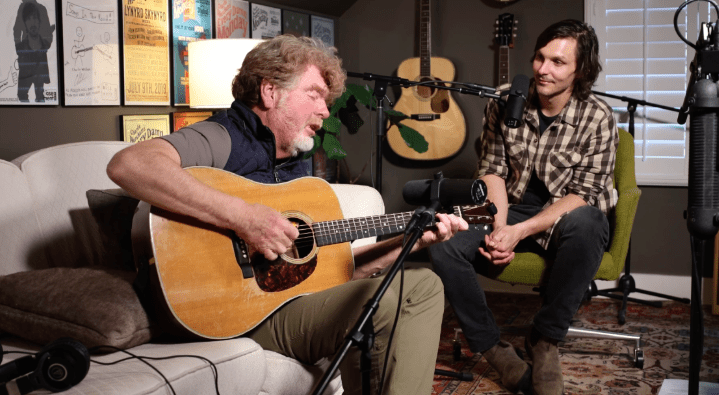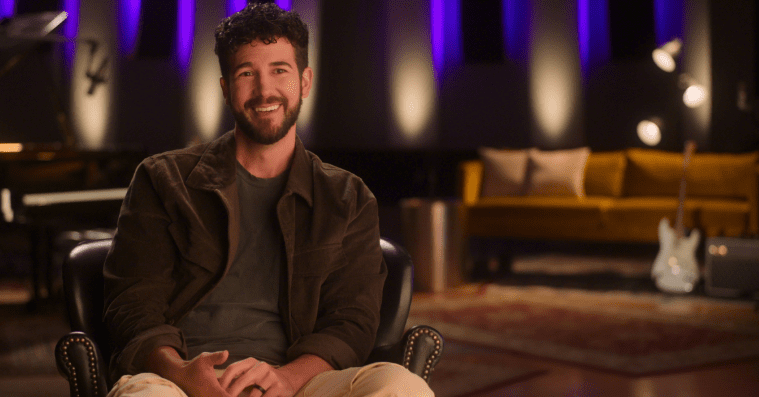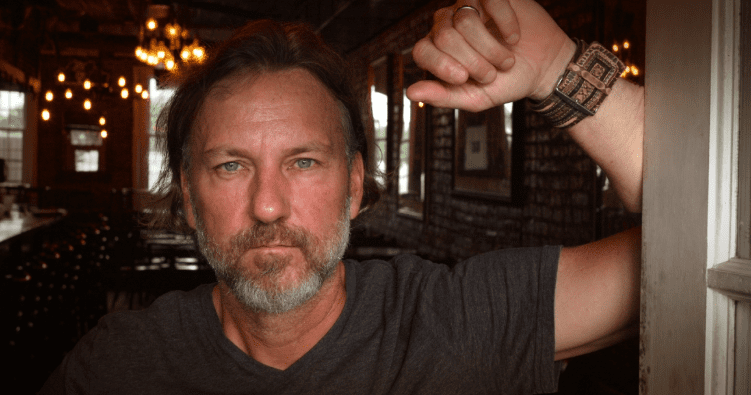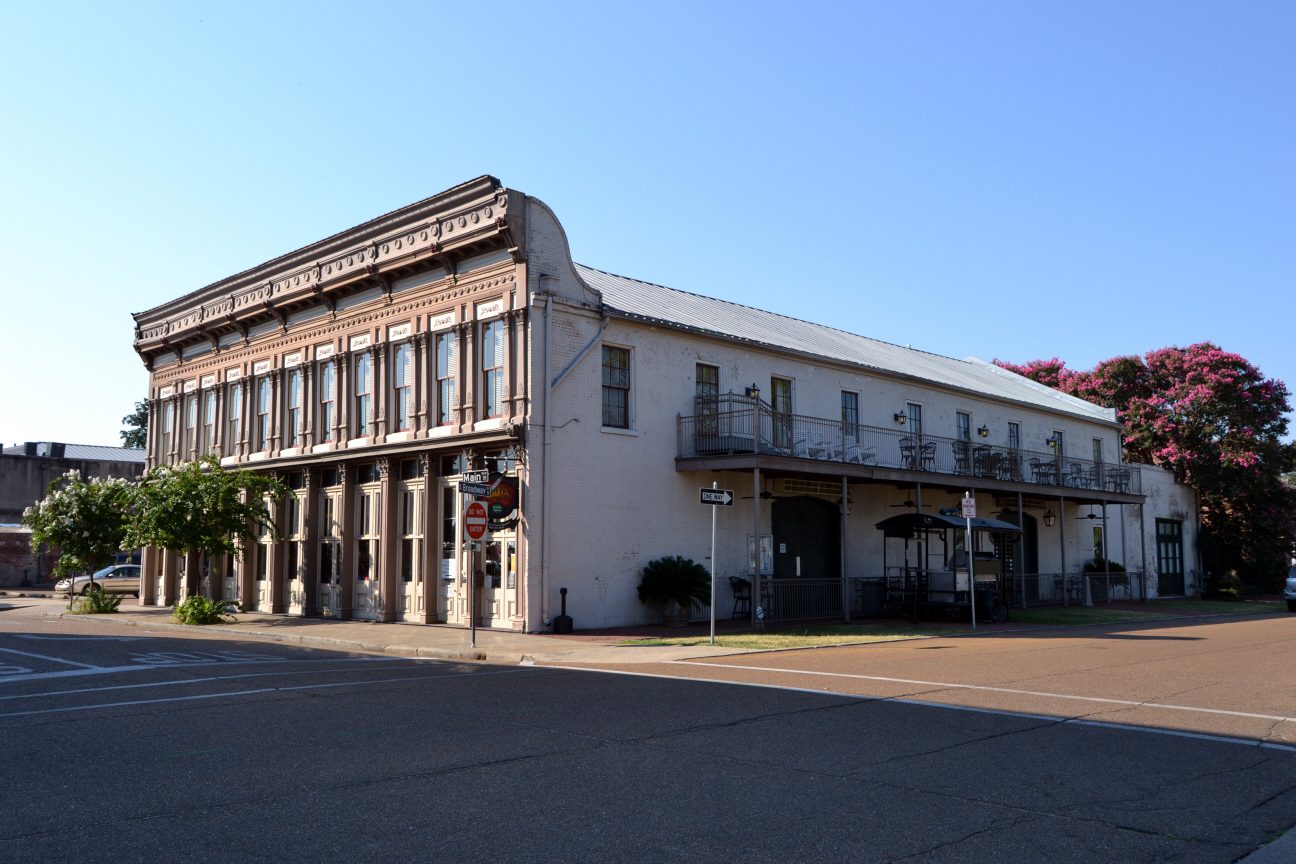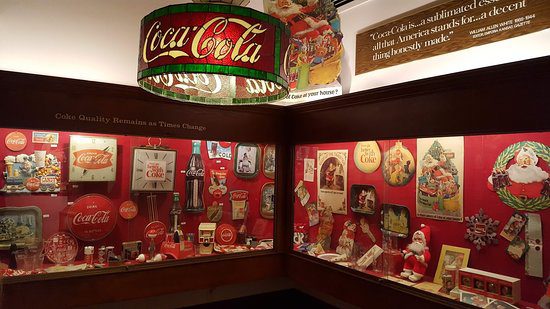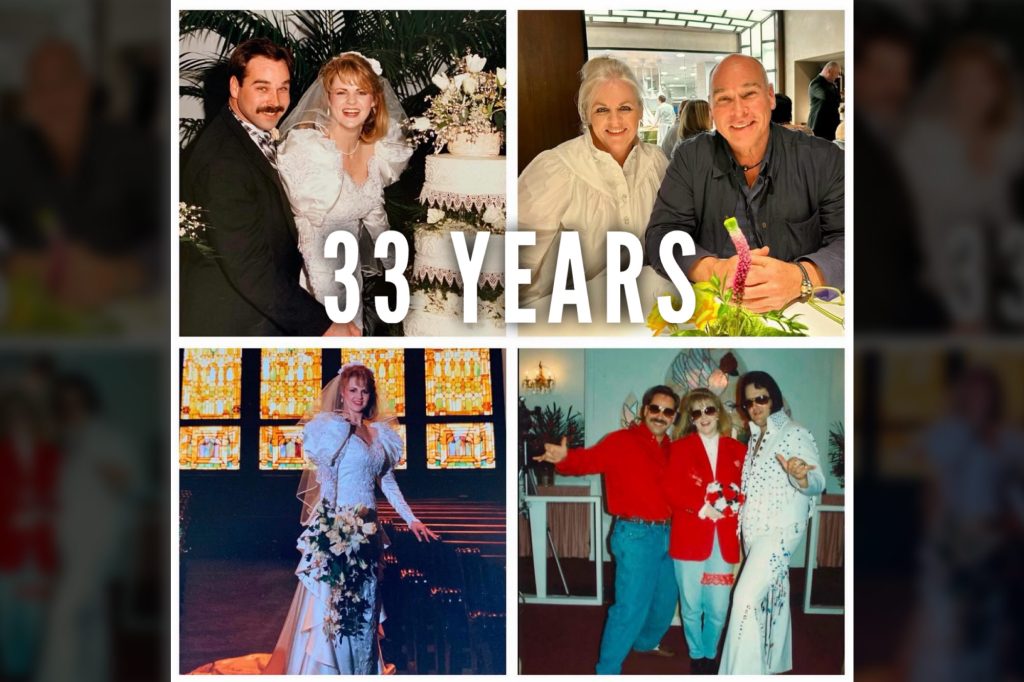
- The 61-year-old blues artist has made harmonicas for James Cotton and Ozzy Osbourne in his Clarksdale shop. Now he’s playing in the band of his dreams.
It’s not surprising to hear of rock-and-roll royalty making a pilgrimage to Clarksdale, Mississippi, in the heart of blues country. Over the decades, plenty of stars have been spotted around the town’s juke joints, as if trying to absorb authentic blues music through osmosis.
One night in 2016, harmonicist Deak Harp had one such sighting while catching a performance at the New Roxy Theater, when he noticed a familiar face attempting to hide behind a disguise. Standing in the audience, with his famous mane of hair stuffed into a ball cap, was the former frontman of Led Zeppelin, Robert Plant.
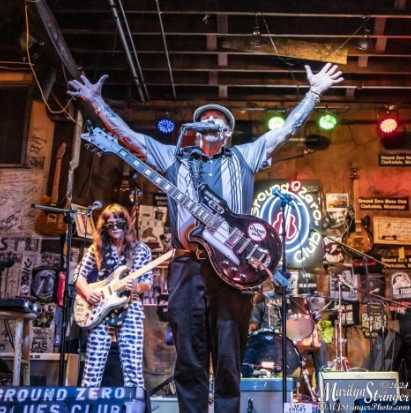
“I walked up and said to him, straight up, ‘It’s nobody’s fault but yours that I’m a musician,’” Harp says, referencing the Led Zeppelin song “Nobody’s Fault But Mine,” which was based on a blues song written by Blind Willie Johnson. “He pulls out his harmonica and starts playing ‘When the Levee Breaks,’” the blues epic, written by Kansas Joe McCoy and Memphis Minnie, that closes Led Zeppelin IV.
“We hit it off right then and there.”
The moment took Deak back to when he started playing harmonica, in Woodbridge Township, New Jersey, in the 1970s. To be specific, it put him about 20 miles away, give or take, from the family home to midtown Manhattan, having his mind blown by Plant wailing on an amplified harp at Madison Square Garden.
“All of a sudden there’s silence, and I can hear this harmonica through the P.A. system,” he says. “I never knew you could be amplified on a harmonica — I always thought it was just a campfire instrument. I knew then I was gonna be a musician for the rest of my life.”
Harp has fashioned quite a musical life, in fact, bouncing from Chicago to Memphis and finally to Clarksdale, where he began playing jukes like Red’s Lounge and opened his shop, Deak’s Mississippi Saxophones and Blues Emporium, on Third Street. Now, he’s well on his way to becoming one of the legends of the same storied blues scene that attracted him in the first place.
“As soon as I got to town, I could feel this vibe,” he says.
Harp first visited Clarksdale as a guest of Cotton, who was making the trip to deliver some of his harmonicas to the Delta Blues Museum. He had begun working for the Chicago bluesman years earlier as a tour driver and was also a student of his playing. Discovering Cotton had been a watershed moment for the budding bluesman in his youth.
“My brother told me, ‘Man, I went to see this guy, and he was blowing a harmonica like crazy! He was taking his elbows and pushing on his belly to push out more air,’” Harp says. “I was like, this sounds amazing. So, when I went to see him, I knew that I wanted to sound or at least be on the same page as he was, as far as the way the harmonica sounded.”
After his career with Cotton, Harp made Clarksdale his permanent home and set about creating a new band. Surprisingly, he didn’t find the right musicians to bring his vision to life. “When I moved to Clarksdale, I could not find any bandmates that would be able to back me up as a Chicago blues band, because everything here is Mississippi Hill Country or Delta blues. So, I grabbed a harmonica and I bought a box for my feet and I started playing.”
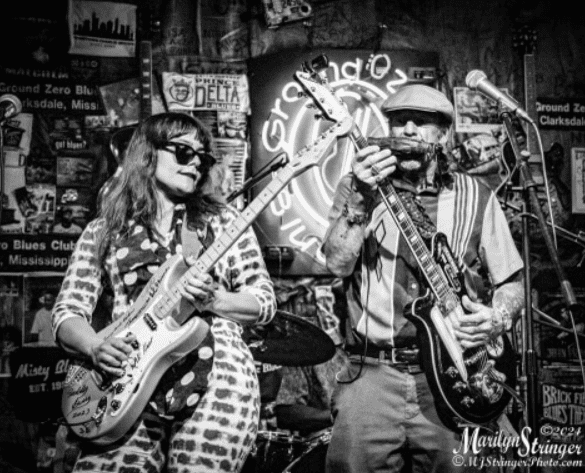
Harp busked with his one-man-band setup at the King Biscuit Blues Festival in Helena, Ark., and played blues clubs and jukes. In 2016, he blew harp at the New Orleans Jazz and Heritage Festival and earned a standing ovation for his labors. After that, the phone started ringing for tours of the U.S., Europe and elsewhere. It’s never really stopped.
“I’ve played in Switzerland, I’ve played in Germany. I’ve played in Australia. I’ve been to Chile, I’ve been to London,” he says. “What I do now is only take the big gigs, because in my shop at the Blues Emporium, I could make a living just making harmonicas.”
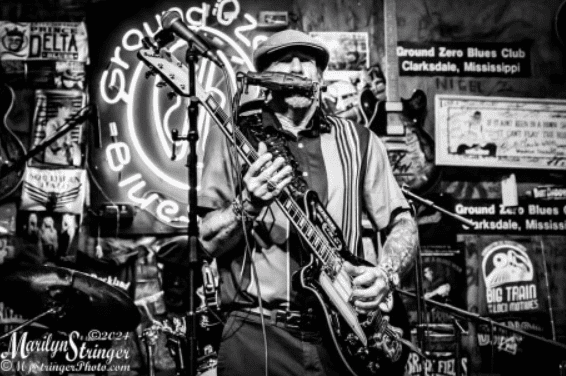
Down on Third Street, Harp’s shop is part retail, part repair and part impromptu performance space, where he’s entertained guests like Ozzy and Jack Osbourne, who featured him in season one of the TV show “Ozzy and Jack’s World Detour” on the History Channel. Ozzy left with a custom-made harmonica like the ones Harp once made for Cotton.
He finally found the right musicians for his band — including guitar player Irene Carrera, who moved to Clarksdale from Tulsa, Oklahoma — and performs a groove-oriented mélange of blues styles held together by drummer Ricky “Quicksand” Martin. After five decades of honking and blowing on his harmonica, he’s living his dream gig.
“I was a blues purist, but now that I’m doing this band, our goal is to let these kids know about the blues,” he says. “Everybody thinks the blues is sad, and this and that. The blues will take your pain away. You just gotta listen to the words and feel it. It’s so intoxicating.”

